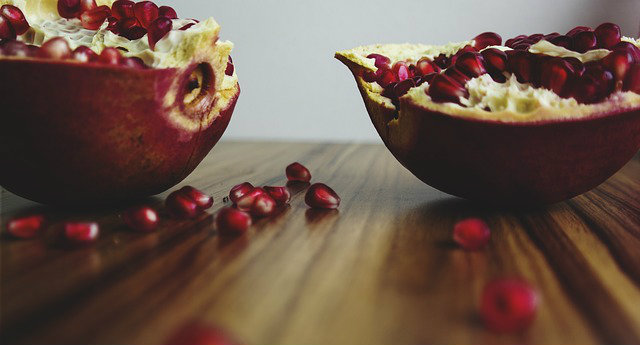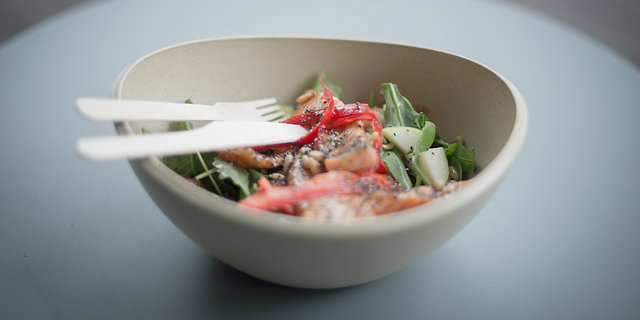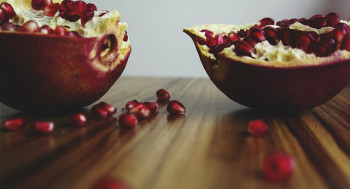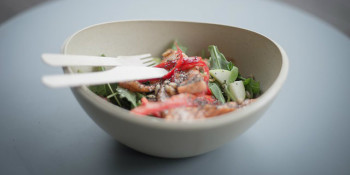 Reading Time: 5 minutes
Reading Time: 5 minutesIn the early 2000s, the pomegranate was the new super food. This antioxidant-rich miracle fruit was said to improve cardiovascular health, fight prostate cancer, and prevent Alzheimer’s disease. Soon, the refrigerators of most health-conscious people contained POM Wonderful pomegranate juice in those funny, double-bulb shaped bottle.
The Super Food That Wasn’t
POM Wonderful, the company, was founded in 2002 by the billionaire couple Stewart and Linda Rae Resnick. The company made $12 million in 2003. By 2006, their earnings had jumped to $91 million. That’s a lot of pomegranate juice.
The labels on POM Wonderful claimed the juice was “full of antioxidants called phytochemicals.” Peeling and eating a pomegranate is a tedious, messy process, so many people were thrilled to have access to the wonders of the pomegranate in a convenient juice form. The POM Wonderful website included a section called “Featured Scientific Studies” that claimed pomegranate juice helped with erectile dysfunction, reduced the length and severity of common colds, and slowed prostate tumor growth.
All that for a little bottle of juice. Sounds almost too good to be true.

And that’s because it was.
The studies proving these health claims were all funded by POM Wonderful. In February 2010, the FDA sent the company a warning letter about promoting the drink as if it were a drug, able to heal illness. In September of that year, the Federal Trade Commission issued an administrative complaint against the company, saying it had made false and unsubstantiated claims.
Then, in May 2012, a judge ruled the company’s claims were deceptive, and issued a cease and desist order effective for twenty years. In January of 2015, the US Court of Appeals for the DC Circuit said many of POM’s ads “mischaracterized the scientific evidence concerning the health benefits of Pom’s products ….” In May of 2016, the Supreme Court declined to review an appeal of the decision that the POM Wonderful claims were misleading.
So much for that super food.
The idea of a particular fruit, vegetable, pill, powder, or oil that promises to solve health problems is appealing. It’s especially seductive to those of us who are health conscious, who care about what we ingest. The combination of an exotic-sounding fruit or ingredient with some scientific words is almost irresistible. Remember the acai craze? Or what about mangosteen?
“This is it,” we think. “This will be the secret to my weight loss/anxiety/bad skin/improved fitness.”
There’s nothing wrong with pomegranates, or Brussels sprouts, or kale, or coconut oil. However, there is something wrong with juicing and drinking one of these ingredients and deciding it’s the key to perfect health.

The Synergy is the Secret
“The whole is greater than the sum of its parts,” Aristotle said. This idea can be applied to wellness. It’s not a coincidence we call this the Whole Life Challenge. Each of the 7 Daily Habits — Nutrition, Exercise, Mobilize, Sleep, Hydrate, Well-Being Practices, and Reflection — work in synergy.
You get a good night’s sleep, and you wake up motivated to work out. Your workout fills you with energy for the day. You eat nutritious foods that fuel your muscles. You take care of your brain by connecting with your community and meditating, and that reduces stress and lowers cortisol levels, leading to better sleep. Soon you are looped in to the opposite of a vicious cycle — call it a virtuous cycle.
Extracting the juice from a pomegranate was not the secret to health, and neither is pursuing only one aspect of healthy living. It’s not just about diet or exercise or sleep or meditation.
It’s about all of them, working together.

It can be difficult to work on multiple healthy habits. It is easier to pick one thing, especially if it’s something that can be purchased in a store, but your results will be equal to the amount of effort you expend. To see real, long-lasting change, you’ve got to approach health from multiple fronts.
If you’re feeling overwhelmed by the idea of 7 Daily Habits, here are a few tips.
How to Focus on the Whole
- Don’t put too much emphasis on one meal or workout. If you miss a workout or eat poorly, just get right back to your good habits. Don’t dwell on your missteps.
- By that same token, don’t think just because you worked out, that means you can eat poorly. Everything ties together. Exercise is wonderful, and essential, but it’s not the whole story. The same goes for each of the 7 Daily Habits.
- Be wary of magic ingredients. If you like to mix turmeric and apple cider vinegar in a shot glass every morning before breakfast, have at it. But know it’s likely not the one secret to good health. You need all the other pieces.
- Be patient, and farsighted. The Whole Life Challenge is the length it is because it takes time to develop healthy habits. If you stick with the program, by the end you should find eating well, sleeping well, and exercising become part of your daily routine. It won’t happen in the first day or week — be patient. As you change your habits, think of them as lasting beyond the Challenge. The changes you make should be sustainable for months, years, even a lifetime.
As you start your Whole Life Challenge, take the idea of “whole” seriously. Think about how all your habits connect, one fueling the other: it’s whole foods, whole-body exercise, whole-body wellness, for your whole life.







